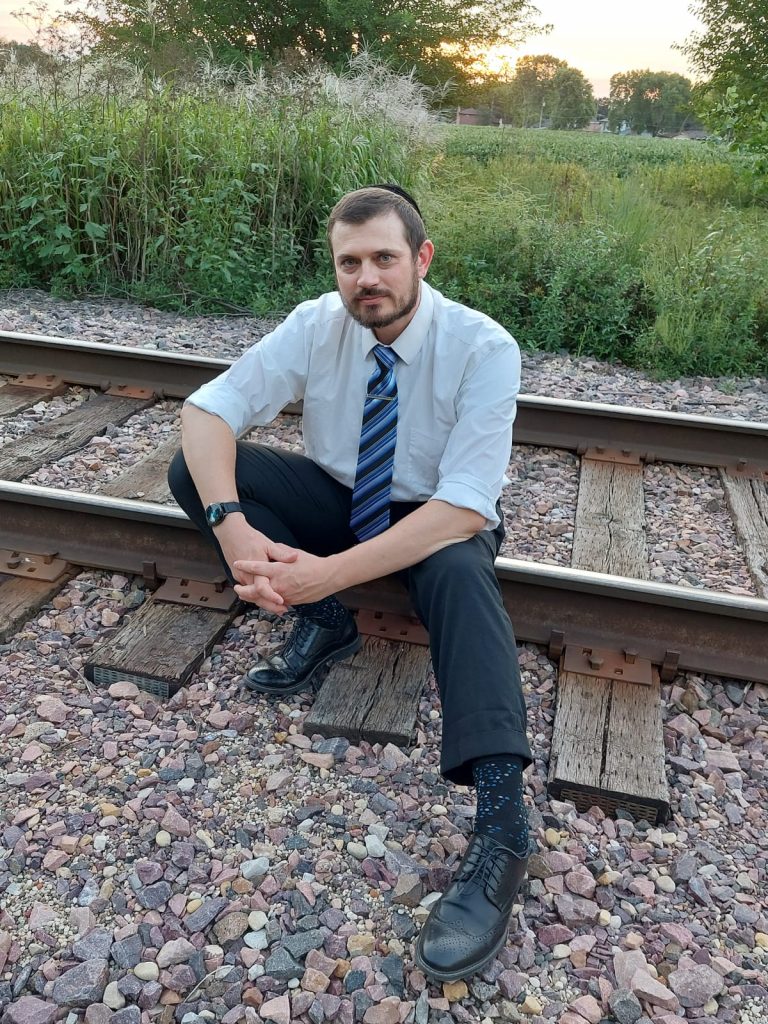Courage, Values, Healing
About
The most powerful instinct we can develop is honesty. It’s the only thing that can align us with reality and push us forward in our lives.
When we listen to honesty, we hear the familiar laundry list of problems in our life. It’s easy to tune out halfway through. There’s a second list honesty wants to share: Those problems have solutions. Your future can be what you want it to be. You are greater than you think.
01
Professional
Using evidence based therapies: CBT, behavioral, and psychoanalytic therapies
02
Focused
Rigorously committed to understanding and facilitating powerful, individualized change
03
Serious
Treatment methods based on solid empirical research ensure the best possible outcomes for clients
“The Privilege of a Lifetime is to Become Who You Truly Are.”
Carl Jung

Founder & Psychotherapist
Yonasan Bender
Raised in a rural farm town, Yonasan Bender, LSW combines small town values with powerful training. He provide clients with cutting-edge empirical knowledge, empathy, and timeless wisdom.
Yonasan’s a graduate of Hebrew University’s Paul Baerwald School of Social Work and Social Welfare. Before Hebrew University, he studied at Washington University in St. Louis and Drake University. Yonasan majored in philosophy and ethics.
Yonasan is a member of the Association For Contextual Behavioral Science. He’s a key member of the clinical team at The Place, the Jerusalem Centre for Emotional Wellbeing. Yonasan is a Dialectical Behavioral Therapist skills trainer at Machon Dvir. He’s also a group leader for the National Educational Alliance for Borderline Personality Disorder’ Family Connections program.
He has experience treating anxiety, depression, anger, poor self-esteem, insomnia, and marital conflict. He has an extensive background working with individuals, couples, families, and children.
important things you should know
Questions And Answers
The short answer is yes. Therapy is more effective than most trusted medical procedures. Within psychology, it’s more effective than anti-anxiety and anti-depressant medications. It’s also more cost effective in the long run without the side effects of medication. On average, 80% of people who seek therapy do much better than those who choose not to.
Therapy is like any other medical approach. It’s science driven helping the vast majority of people. At the same time, different problems need different “doses” of therapy. Some problems are more straight forward than others. Some issues are sorted out after 12-16 sessions but others can take longer and be much more serious.
Not everyone responds to all medical procedures and therapy is no different. It’s more tricky because there is also the human element. If you don’t feel therapy is working for you with your therapist, talk to him about it. Often this will sort out the issues between the two of you. It might also be worth consider seeing someone else before giving up on it. It’s reasonable to try out three or more therapists before you settle on one to work with.
There are several phases in therapy.
Therapy begins with an assessment phase. During the first few sessions the goal is to figure out what the different issues on the table are. To what extent and where are they manifest in the client’s life? When do they occur and how do they unfold? Is there any other issues the client might not have thought of that also play a role directly or indirectly?
Different types of questionnaires and assessments are used to zero in on problems. Often, people think their situation is worse than what it really is. So, this phase has the nice side effect of also being a therapeutic intervention. The assessment phase also helps track progress. Is treatment working, should something else be tried, or a new direction explored?
Once the assessment phase is complete, the goals and targets are set to work towards. What success would look like is defined. Here the client and therapist also negotiate what type of style of therapy would work best. Not every type of therapy works the same. Some are better at treating certain problems more than others. Also, clients might already have a preferred approach they know works for them
The last stage is working towards the goals that were mutually established. Often, each session ends with a weekly assignment or an experiment to try. This aspect of treatment is key. It takes what is done inside the therapy hour and brings it into the client’s “real life”.
It’s important for the therapist to be available outside of treatment hours. This enables the tools learned in session to be applied in the client’s real life.
For this reason Yonasan Bender does take phone calls throughout the day. He quickly coaches the use of skills learned in therapy. If he can’t answer at that moment he’s usually able to respond later that day or at the very least the following day.
If you want to reach out with any questions or to schedule an appointment, you can reach him by phone. His number is 053-808-0435, Whatsapp at +972 53 808 0435 or by email at info@jerusalemtherapy.org
That is a tough question to answer because a lot of factors go into it.
First, each problem has a different level of severity. For example, research shows mild to moderate anxiety can take roughly 12 sessions to sort out.
Unfortunately, the real world doesn’t reflect research studies. Most people’s problems are a lot more complex than a single diagnosis. Someone suffering from severe anxiety, understandably, has developed other issues as well. Depression, chronic pain, social issues, and distrust of others are common co-occurring issues. Each problem needs to be untangled and addressed.
Second, the goals of therapy can change the time scale. Some people use therapy to explore their lives using as a path to self discovery. That process can last as long as you have years in your life to spare. Others might come in with several issues but only want to work on one.
Third, how deep the problem goes is another consideration. Depression at age 25 due to a layoff can be quite serious but it’s also fairly straight forward to handle. In contrast, a personality disorder or abuse effects every area of life profoundly. These are deeply complex problem.
No matter what the problem, therapy is a powerful tool and can help you no matter what your situation is.
Therapy is an expense, especially when private. At the same time, the financial returns are enormous.
On a “numbers level” completing therapy correlates with a significant income increase. Suffering get in the way of creativity, productivity, and making vital networking connections.
Considering what you save, therapy is cost effective. Long term psychiatric visits and medication costs is sometimes necessary but expensive. In-patient treatment is sometimes due to putting off seeing a therapist. That has very high impact costs to a person’s professional life that are often avoidable.
Successful therapy also makes what you have “feel” better. Anxiety, marital conflict, and personality disorders are serious burdens. Often the lion’s share of those burdens are how they seep away life’s joys.
lastly, if the specific goal of therapy is to make more money, then it certainly is worth it. Clients coming to improve assertiveness and professional development come away increasing their income. Often those increases are two or three times what they were making before starting.
How Does Therapy Work?
Therapeutic Process

Making a Start
Clients often ask if their problems are unusual. Unfortunately, the answer is no. Research shows over 50% of people, at some point, suffer from a diagnosable mental health issue. There’s no shortage of pain or fear.
What makes folks that seek therapy even more unusual is their courage and vision. The fact they take their lives into their own hands and seek treatment is no small feat. Only a fraction of people who suffer seek therapy. These people dare to be more.
You Are Not Alone
With You Through
All of Life's Challenges
Thoughts, action, and feelings. We are complex beings at every level. That’s why a single therapy approach can’t be a one size fits all. While every therapy is effective, it’s important to find the approach that works best for you. That’s why Yonasan Bender utilizes all the major therapeutic traditions in his work.
You Aren't the First Person to Face This
Over seventeen years of education and training have equipped Yonasan Bender to help you face the most difficult problems of your life head-on






